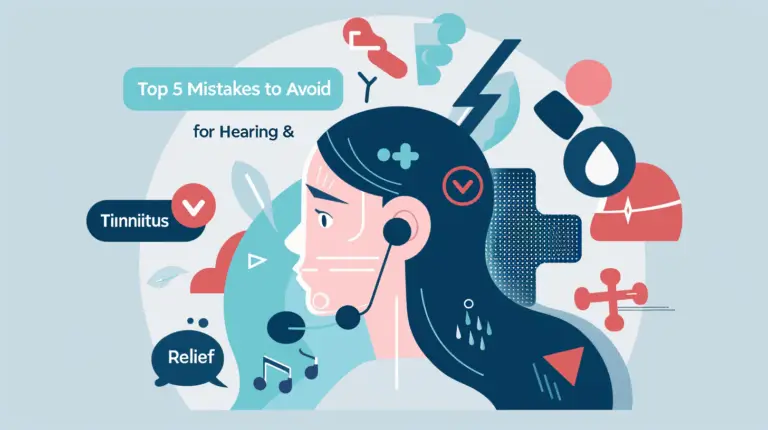🎧 Beginner’s Guide to Understanding Tinnitus: What You Need to Know
Have you ever heard a constant ringing, buzzing, hissing, or whooshing sound in your ears, even when everything around you is completely quiet? If so, you may have experienced tinnitus, a surprisingly common condition that affects millions of people worldwide.
If you’re new to this topic, don’t worry—this beginner’s guide will help you understand exactly what tinnitus is, what causes it, and how you can start managing it.
🧠 What Is Tinnitus?
Tinnitus (pronounced TIN-ih-tus or tin-NIGHT-us) is the perception of sound when no external sound is present. It’s often described as:
- Ringing
- Buzzing
- Hissing
- Whistling
- Roaring
- Clicking
For some people, it’s occasional and mild. For others, it can be constant and disruptive.
🎯 What Causes Tinnitus?
Tinnitus isn’t a disease itself but rather a symptom of another underlying issue. Here are some of the most common causes:
- Exposure to Loud Noise: Concerts, construction sites, loud music, or power tools can damage the delicate hair cells in your inner ear, leading to tinnitus.
- Age-Related Hearing Loss: As we age, hearing naturally declines, often triggering tinnitus.
- Earwax Blockage: A buildup of wax can block the ear canal and cause buzzing or ringing sensations.
- Stress & Anxiety: High stress levels can make tinnitus more noticeable and harder to cope with.
- Medical Conditions: High blood pressure, circulatory problems, or jaw issues (TMJ) may contribute to tinnitus.
- Medications: Some drugs, particularly high doses of aspirin, antibiotics, or anti-inflammatory medications, can cause or worsen tinnitus.
🩺 Is Tinnitus Dangerous?
In most cases, tinnitus itself isn’t dangerous. However, it can:
- Affect sleep
- Reduce concentration
- Increase stress and anxiety
- Interfere with daily activities
If tinnitus appears suddenly, is severe, or occurs with other symptoms like dizziness or hearing loss, it’s essential to consult a doctor.
🕵️ Can Tinnitus Be Cured?
There’s currently no universal cure for tinnitus, but the good news is that many people find ways to reduce its impact or even quiet it completely with the right approach.
🌿 How to Manage Tinnitus Naturally
Here are some simple, beginner-friendly strategies to help:
- Protect Your Hearing: Use earplugs in loud environments and turn down headphone volume. Prevention is key.
- Try Sound Therapy: Soft background sounds (white noise machines, fans, nature sounds) can help mask tinnitus, especially at night.
- Reduce Stress: Meditation, deep breathing, and exercise can lower stress levels, which often worsens tinnitus.
- Explore Supplements: Some people find relief with hearing support supplements like Quietum Plus, which may help support healthy circulation and calm nerve irritation.
- Seek Professional Support: Hearing specialists (audiologists) can help determine the cause of your tinnitus and suggest personalized treatments, such as hearing aids or counseling.
💡 When to See a Doctor
Don’t ignore tinnitus if:
- It appears suddenly
- It’s only in one ear
- It’s accompanied by dizziness or balance problems
- Your hearing suddenly declines
A medical evaluation can rule out serious underlying issues.
🎯 Final Thoughts: You’re Not Alone
Tinnitus can be frustrating, but you’re far from alone—and you’re not powerless. By understanding what’s happening, protecting your ears, reducing stress, and exploring natural support options, you can take control and reduce the impact of tinnitus on your life.
Want to learn more about natural hearing support? Explore trusted options like Quietum Plus to take the next step toward peace and quiet.
